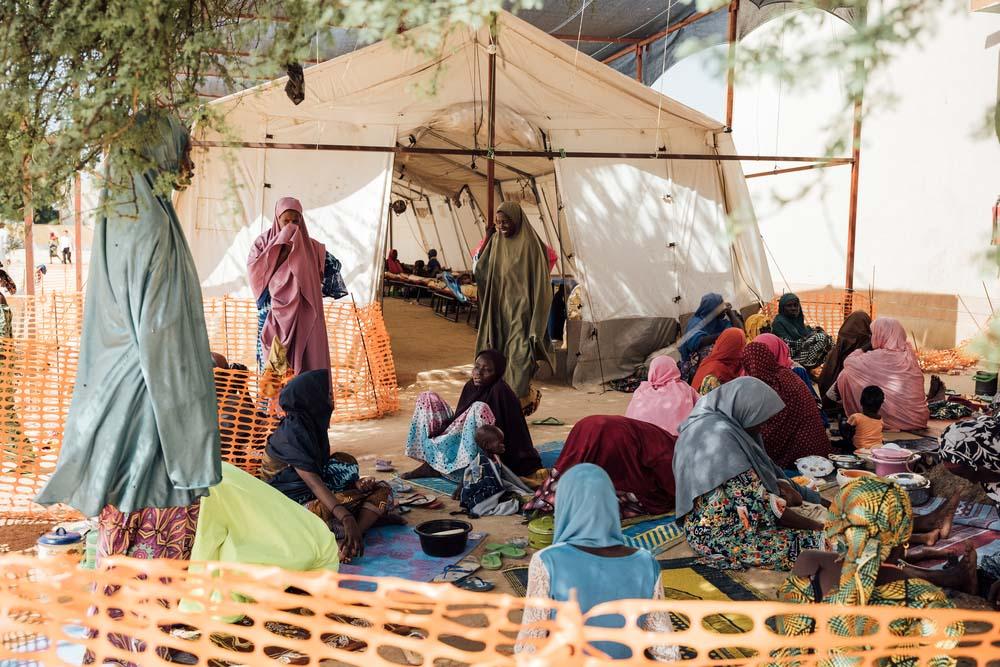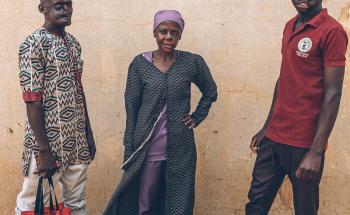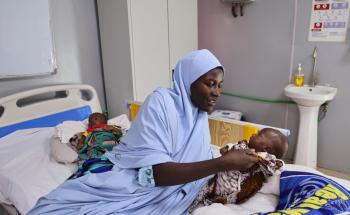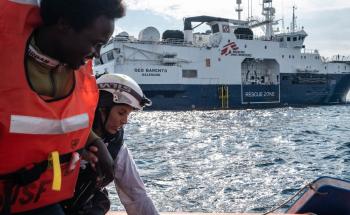Lena Pflüger, a Communications Officer from Doctors Without Borders in Germany, shares stories from interviewing mothers of malnourished children in Niger and explores the causes of malnutrition and how MSF has responded to this health crisis.
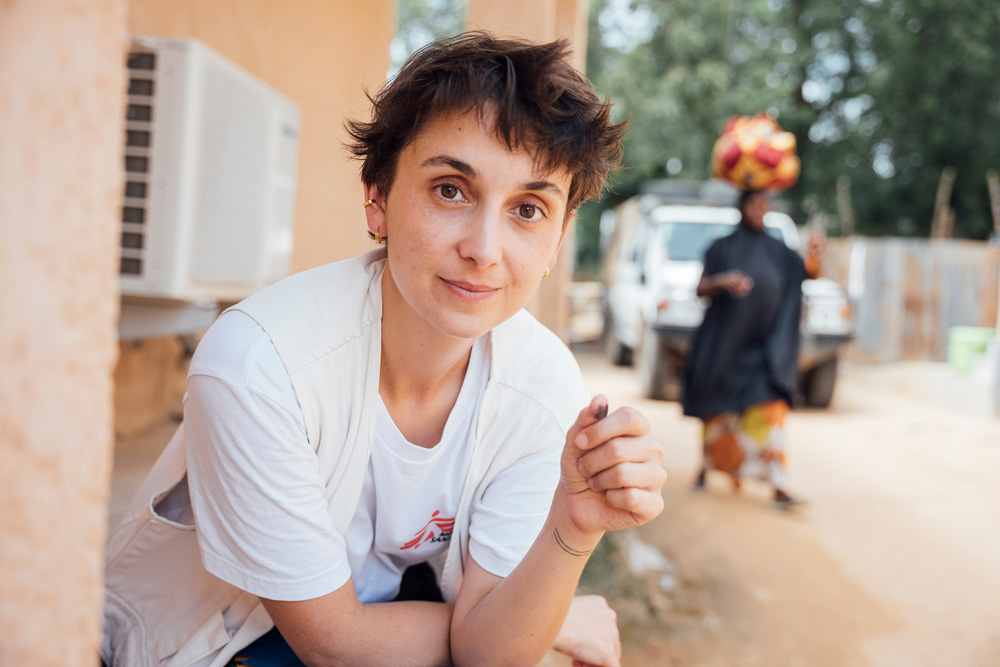
What if malnutrition is not the biggest problem?
The intensive care unit for malnourished children here at the hospital in Magaria in southern Niger is large. The children are two to five years old, too young to be able to tell anything themselves, and most of them are still too sick too. Instead, our translator Bashir Mallan Hamza and I talk to the mothers of the little patients. Without Bashir, this would not be possible – he immediately understands what is important in the interview process.
Just do it!
The hospital has a total of 450 beds for acutely malnourished children. The catchment area is huge and extends far beyond the border of Niger into northern Nigeria. Here in the intensive care unit, there are about 30 beds. MSF has been supporting the hospital for about 15 years with a nutrition program and in paediatrics - currently, the teams are preparing everything to gradually hand over some of the responsibilities and activities to the local health authority.
I banish my nervousness and remind myself: just do it!
May we ask you a few questions?
We approach one of the women. Her facial expression is motionless at first - I'm not sure she wants to talk to us. Bashir asks initial questions and explains in Fulfulde, one of the local languages of the region, what we are doing and why.
Then a smile slides across her face and her eyes wander to me with interest. "Woddi” - all right. It's okay with her. We squeeze in between the beds and get talking. I want to know where she is from, how her child is doing and what the situation at home is like overall. Does the climate crisis play a role here, how much does the violence in the region affect her, or are her daily challenges quite different?
The doctors explained to me that malnutrition often goes hand in hand with other illnesses because being malnourished weakens the immune system. Ultimately, however, malnutrition itself is a serious life-threatening condition.
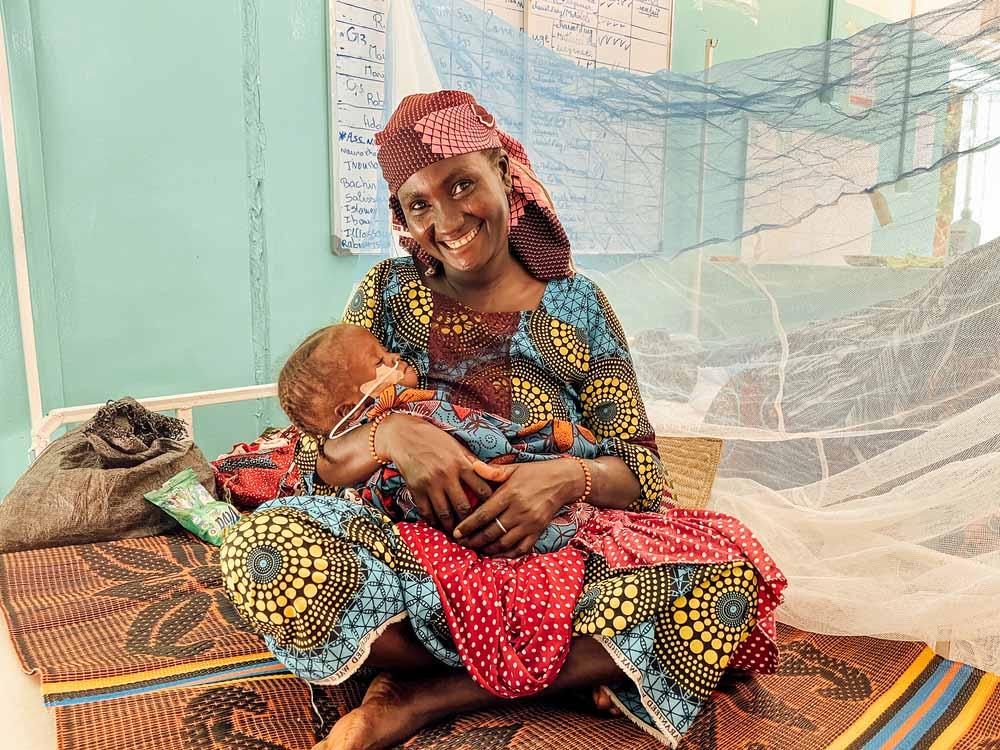
My daughter couldn't breastfeed Latifa any longer. That’s when the malnutrition started. The child’s father is working abroad, sending money back - but as it is first being sent to his parents, my daughter doesn't receive all the money and doesn't have enough to feed all her children sufficiently.Kanpe Alhassan
She tells us that her name is Kanpe Alhassan, and she is here with her granddaughter. Two-year-old Latifa Lawali has been very sick for almost a month. Now the two have been here in intensive care for two days. Latifa is receiving therapeutic nutrition through a feeding tube, and Kanpe is taking care of her.
Health crisis as everyday life
Malnutrition is a recurring phenomenon here in Niger. Project coordinator Dr. Roger broke down the causes for us. As usual, it's complex: increasing drought making farming difficult, heavy rains destroying crops, violence in the region, speculation in the food market. But also, the fact that the area of fertile land has to feed more and more people due to the spread of the desert and population growth. In addition, cultural aspects also play a role, such as the fact that eggs, whose nutrients could well prevent malnutrition in children, are reserved for the head of the family, or that international aid is directed toward supposedly more acute crises.
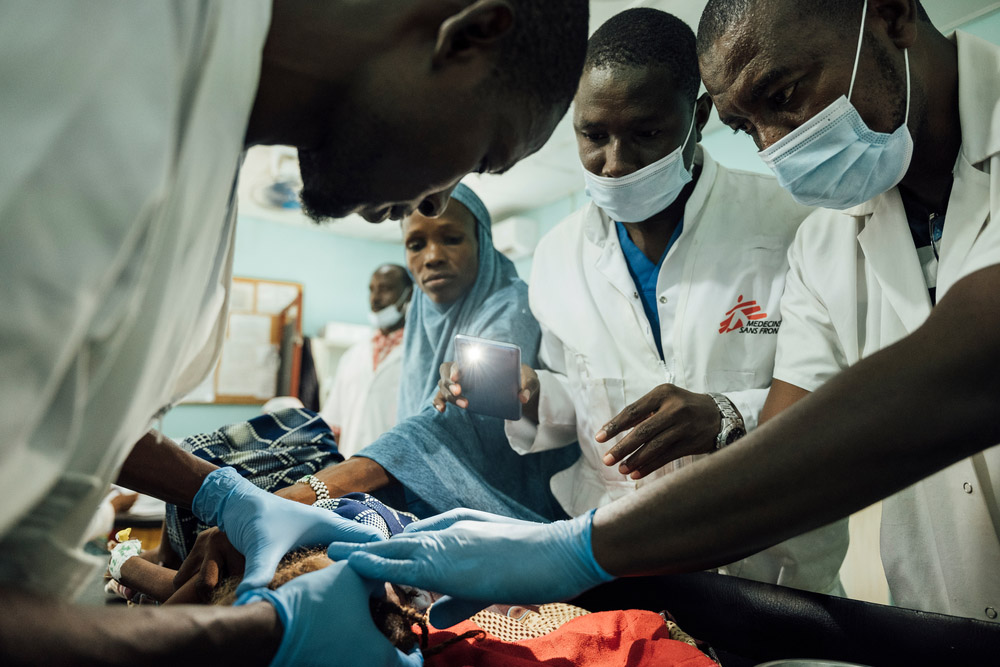
Almost ready to go home
After the lunch break, we change wards and visit the patients* in phase T. "T stands for transition," explains Dr. Joel Tiove, who heads up paediatrics in Magaria. "The children here are already doing better; they are already getting the second stage of special milk and a fortified peanut paste called Plumpy’Nut." He says it's important that they get used to Plumpy’Nut, because they will soon continue their treatment as outpatients at a health post closer to home, and there only the paste is usually available.
Again, most of the mothers are Fulani. Bashir tells me that this ethnic group is said to be very reserved. But our experience is quite different: the women are open and interested. And because the children here have visibly recovered, the mood on this ward is generally more relaxed.
When the rain comes too late
"He had very bad diarrhea - everything he ate just went right through him," Nafisa Mutari (36) tells us. The mother of five took her youngest to the hospital in Magaria for treatment. Little Amir Osuman spent two days in the intensive care unit, where he received a blood transfusion and special therapeutic food. He is now doing better and Nafisa hopes to be able to go home with him soon.
We are farmers. Usually, we can live of the land. But not every year - when the rain is late, the crops don't grow to harvest. Then we are struggling to make it to the next season.”Nafisa Mutari
"We live in Angowal Majé, a village about 15 km from Magaria," she says. She tells us that they are farmers and can usually live off their land. "But not every year - when the rains come too late, the harvest is small. Then we struggle to get into the next season without hunger. This year the rains came very late, and we didn't get much rain."
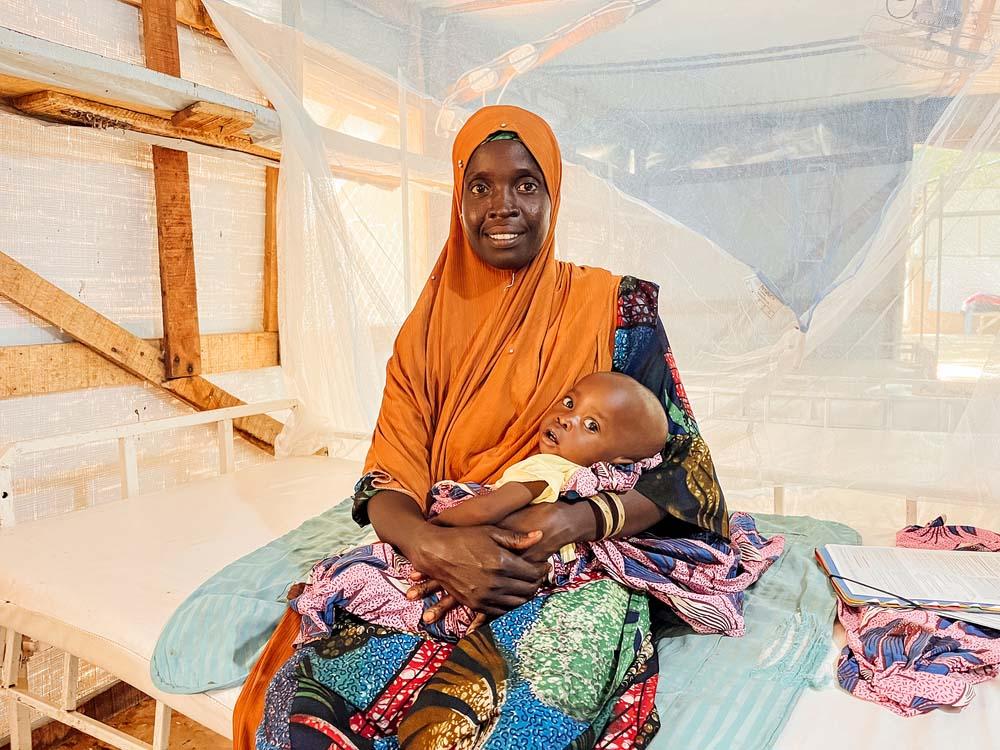
Encounters that stay with me for a long time
At the end of the day, we are tired, but when we go through the interviews in the evening, also very satisfied - it was an editorially successful day and also immensely enriching on a human level. On days like these, I feel why I enjoy this job so much and why the work of Doctors Without Borders is so important.
I will think for a long time about what the mothers told me today - when I asked them why their child was here, hardly any of them mentioned malnutrition first. For most of them, other illnesses such as malaria, pneumonia or acute diarrhea were of primary importance.
The doctors explained to me that malnutrition often goes hand in hand with other illnesses because being malnourished weakens the immune system. Ultimately, however, malnutrition itself is a serious life-threatening condition. What must the overall health and food situation be like here, if malnutrition is almost part of everyday life and not a reason for parents to go to the hospital?
It is becoming increasingly clear to me that the "health crisis of malnutrition" here in Niger is multi-layered and requires correspondingly comprehensive approaches to solutions, in which not only humanitarian actors must take on key roles.
